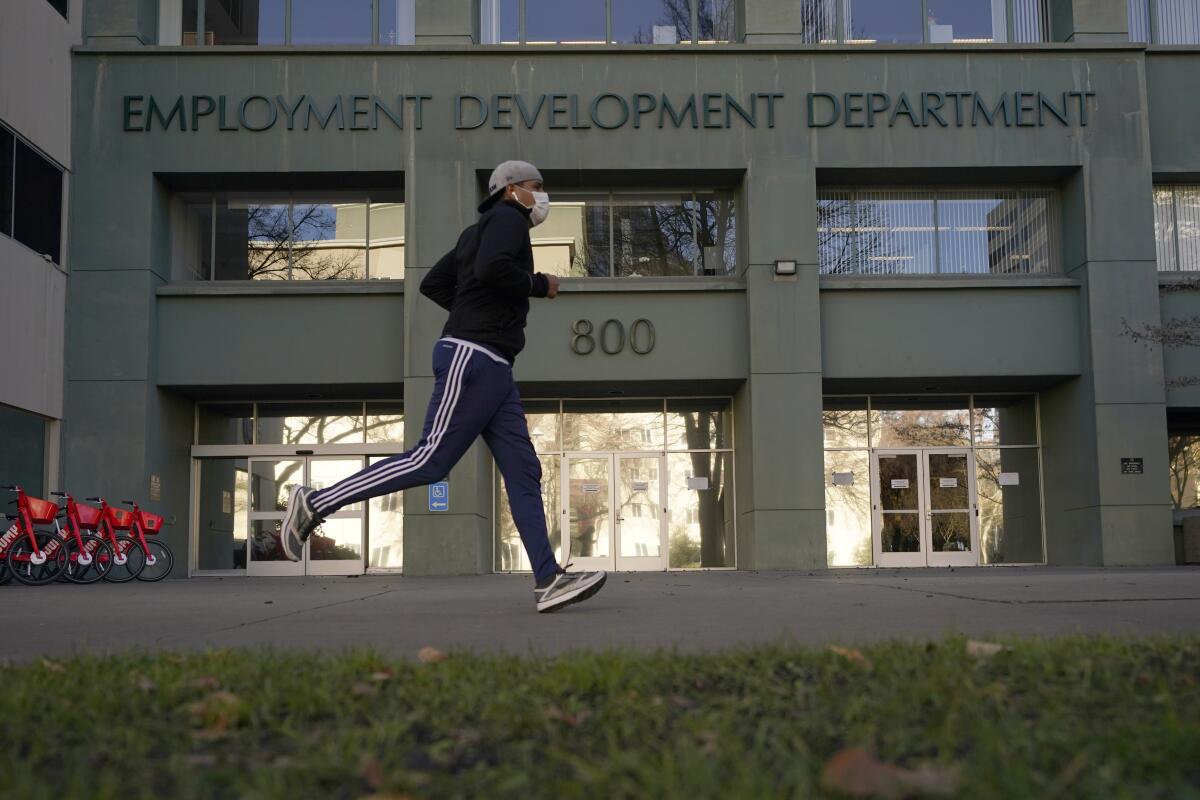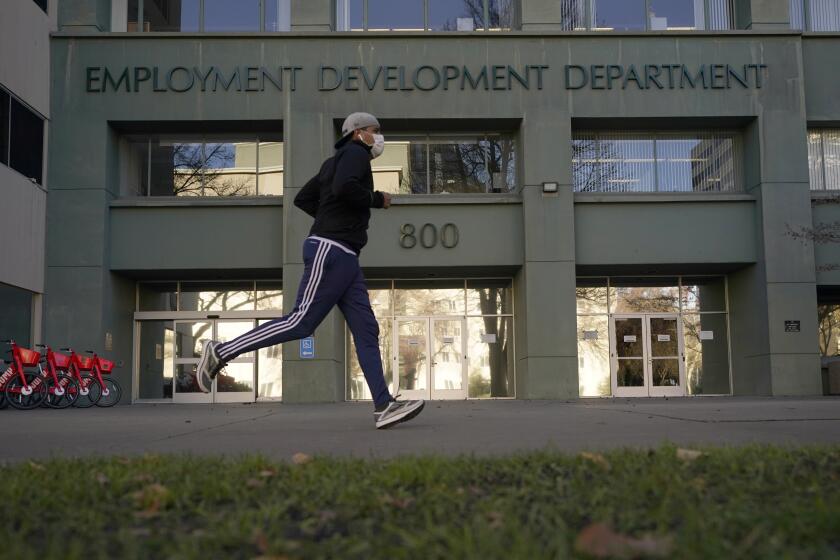California recovers $1.1 billion in unemployment aid amid fraud investigation

- Share via
California officials have recovered $1.1 billion in unemployment insurance funds amid an ongoing investigation into widespread pandemic-related fraud, authorities said Tuesday.
Most of the money, on about 780,000 inactivated benefit cards, will be turned over to the federal government because the claims went through the emergency Pandemic Unemployment Assistance program, according to a statement from Gov. Gavin Newsom’s office.
“Fraudsters and criminal organizations ripped off California, along with every other state, during one of the worst crises in history,” Newsom said. “We’re taking aggressive action to return that money to the taxpayers.”
The California Employment Development Department was overwhelmed with unemployment benefits applications at the start of the COVID-19 pandemic after Newsom issued the nation’s first statewide stay-at-home order, which forced many businesses to close.
The state Employment Development Department froze 27,000 medical provider accounts and 345,000 disability insurance claims that the agency suspected of fraud.
Since then, the agency received at least 26.4 million claims and paid $180 billion in benefits. But about $20 billion of those payments went to scammers who posed as prison inmates — or, in one instance, faked being Sen. Dianne Feinstein — to fool state officials into sending them checks.
In Tuesday’s announcement, state officials reported 1,525 cases investigated, 467 arrests, 162 convictions and $3.47 million seized in the last 15 months.
McGregor Scott, a former federal prosecutor, was hired in July as a special counsel to aid in the investigations.
Scott, who was the U.S. attorney for the Eastern District of California until he stepped down last year, led a task force of state prosecutors that announced an investigation into unemployment fraud in November 2020.
The probe was launched by Scott and nine county prosecutors after they found evidence that thousands of fraudulent claims for unemployment benefits were filed in the names of California prison inmates, including some on death row.
“We will continue working with law enforcement to put fraudsters behind bars and recover every stolen dollar that we can,” Scott said in a statement Tuesday.
Federal authorities charged 13 people and arrested five, accusing them of using stolen identities to collect pandemic relief and other benefits.
The EDD has been strained by widespread fraud and a backlog of payments during the pandemic; this year, Rita Saenz stepped down as director after just over a year on the job. She was replaced by Nancy Farias, a deputy director at the department since 2020.
Newsom’s office said state officials have taken steps to limit fraud, including stopping more than $125 billion in attempted fraud through an identity verification system that was implemented in 2020 and partnering with Thomson Reuters to help detect and prevent suspicious activity. State officials also set up a call center to help victims of identity theft deal with tax-related questions and have been working with Bank of America to issue chip-enabled debit cards, according to Tuesday’s statement.
Other efforts include working with the Fraud Task Force at the state Office of Emergency Services on more than 1,000 active investigations, arrests and prosecutions across California; creating investigative guides for law enforcement and offering technical assistance to investigators; and issuing scam alerts throughout the pandemic to warn the public about cellphone and email phishing schemes that aim to steal personal information.
The fake unemployment claims and backlog of legitimate claims drew national attention during the pandemic and led to a wave of new funding to hire additional staff and modernize systems to detect fraud.
The Associated Press contributed to this report.
More to Read
Sign up for Essential California
The most important California stories and recommendations in your inbox every morning.
You may occasionally receive promotional content from the Los Angeles Times.











